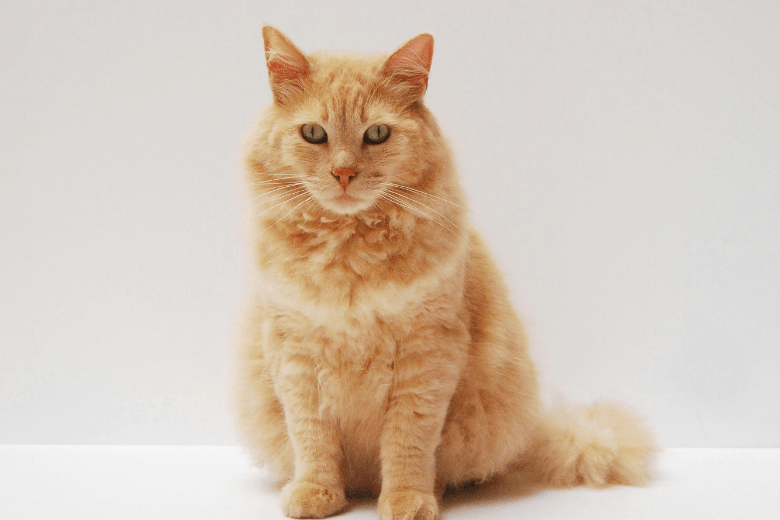What older cat owners need to understand is that they need to take extra time and effort in caring for their domesticated feline friends. Senior cats, typically defined as those over the age of 7, experience various physical and behavioral changes that necessitate adjustments in their care routine. Here are all the basic recommendations, beginnings of knowledge, and life hacks that will help the cat owner care for an elderly cat and make the pet as comfortable as possible for the remaining years of its life.
Understanding the aging process in cats
Cats have a shorter life span compared to humans, one cat year is equivalent to 15 human years, or rather the first two years of a cat’s life is equivalent to 24 years of human life. Then each feline year equals roughly 4 human years and with every subsequent cat’s year, the number of human years increases. A domesticated cat that is over 10 years of age is referred to as a senior, while those that are 15 years and above are referred to as geriatric cats. Old cats can suffer from various diseases such as kidney disease, diabetes, dental issues, they may become obese, have dental problems, they may lose their mobility, etc.
If you’re passionate about improving the lives of cats and want to turn that passion into a career, consider exploring zoology vacancies on Jooble.org.
YOU MIGHT BE INTERESTED IN
The 11 Longest-Living Cat Breeds
Housecarers – We Are Fair and Transparent
Nutrition and diet for senior cats
One of the most important needs is to feed your cat according to its age and use a special senior cat diet that will cover all the necessary nutrients. Adult cats, especially the old ones, may need foods with lower calories since they are prone to weight gain while at the same time may need foods with higher nutrient density due to their aging systems. According to a study by the American Animal Hospital Association (AAHA), around 40% of cats over the age of 11 are underweight, highlighting the importance of monitoring their food intake and weight closely.
- High-quality protein: Senior cats need high-quality protein to maintain muscle mass. Look for cat foods that list real meat, fish, or poultry as the first ingredient.
- Controlled phosphorus levels: Lower phosphorus levels can help support kidney health, which is particularly important as kidney disease is common in older cats.
- Antioxidants and Omega-3 fatty acids: These nutrients help reduce inflammation and support joint health, which is vital for aging cats who may suffer from arthritis.
ADDITIONAL READING
5 Common Signs Your Cat Has a UTI
Regular veterinary check-ups
Frequent veterinary visits are essential for senior cats. Annual check-ups are recommended for younger cats, but senior cats should see the vet at least twice a year. These visits can also help to detect diseases related to old age so that treatment can be done at the right time.
Common conditions in senior cats include:
- Chronic kidney disease (CKD): Affects approximately 30-50% of cats over the age of 15.
- Hyperthyroidism: Characterized by weight loss despite a good appetite, increased thirst, and hyperactivity.
- Diabetes: Affects about 0.5% to 2% of the feline population, with older cats being more susceptible.
YOU MIGHT LIKE
I Knew That Was the Route I Wanted to Take for My Pet Patients
Dr. Uri Burstyn – Pets Enrich Your Life Tremendously
Maintaining dental health
Cats’ dental disorder begins with senior cats, a research finding shows that close to 70% of cats that are older than three years are affected by the disease. Dental examinations and professional teeth cleaning, including prophylactic treatment, should not be skipped as this can easily lead to pain and infection that worsen its general well-being. Home dental care, such as brushing your cat’s teeth or using dental treats and toys, can also help maintain oral health.
RELATED READING
Cat Dental Health
Ensuring comfort and mobility
Diseases like arthritis and pain in joints are the top diseases in cats who are advanced in age and affect their movement and overall health. To help your senior cat stay comfortable:
- Provide soft bedding: Provide comfortable but firm mattresses or orthopedic beds to minimize pressure on joints.
- Easy access: A good environment should have the food, water bowl, and litter box conveniently placed for the cat. If needed, make ramps or steps for your cat to access the desired premises or objects more easily.
- Joint supplements: Supplements such as glucosamine and chondroitin can be used to promote the health of skeletal systems.
Mental and emotional well-being
Older cats can develop a form of dementia like that observed in people. A significant aspect of cat care is to ensure that their brain gets a good workout for their emotional well-being. Tease your cat with toys, feed multiple times a day using the treat dispensing toys, and spend quality time playing with your cat. Also, keep as many routines as possible regarding the time spent at home, or any other activities that are conducted throughout the day as consistent as possible to assuage stress.
Final thought
Caring for a senior cat involves understanding their changing needs and making adjustments to ensure their health and happiness. By providing a suitable diet, regular veterinary care, proper dental hygiene, and ensuring their comfort and mental stimulation, you can help your feline friend enjoy their senior years to the fullest. Remember, the love and companionship of a senior cat are incredibly rewarding, making every effort worthwhile.
Credit: Diana Huggins

